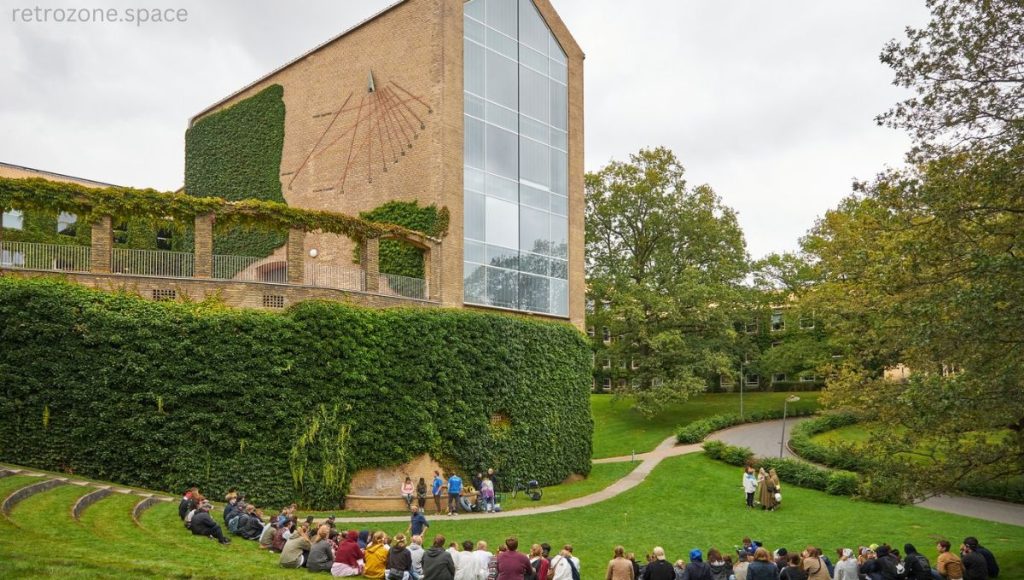When it comes to understanding our oceans and their critical role in global sustainability, Aarhus University in Denmark stands at the forefront.
With a strong focus on marine biogeochemistry and ocean ecosystems, the university is driving innovative research to address some of the most pressing environmental challenges of our time.
Whether you are a prospective student, a researcher, or simply someone passionate about marine science, Aarhus University offers unparalleled opportunities to dive deep into the mysteries of the ocean.
Let’s explore what makes Aarhus University a global leader in marine biogeochemistry and ocean ecosystem studies.

Why Aarhus University Stands Out in Marine Science
Aarhus University is recognized worldwide for its commitment to advancing marine research. Here are a few reasons why the university is a top destination for studying marine biogeochemistry and ocean ecosystems:
- Cutting-Edge Research: The university leads international studies on the chemical, physical, and biological processes shaping oceanic environments.
- Interdisciplinary Approach: Collaboration across fields like biology, chemistry, and environmental science ensures a holistic understanding of marine ecosystems.
- World-Class Facilities: Advanced laboratories, ocean-going research vessels, and access to marine stations provide hands-on learning and research opportunities.
According to the QS World University Rankings, Aarhus University consistently ranks among the best universities in environmental and marine sciences.
Programs Specializing in Marine Biogeochemistry and Ocean Ecosystems
Aarhus University offers a range of academic programs designed to prepare students for impactful careers in marine science.
1. Bachelor of Science in Biology
Although broad in scope, this undergraduate program provides a foundational understanding of marine biology and ecological processes.
- Key Courses: Marine ecology, ocean chemistry, and environmental modeling.
- Practical Learning: Fieldwork along Danish coastal regions and laboratory-based projects.
- Career Pathways: Environmental consultancy, marine conservation, and ecological research.
Example: Students have conducted field experiments analyzing nutrient cycles in coastal waters to understand how human activities influence marine ecosystems.
2. Master of Science in Biology – Marine Science Track
This specialized master’s program dives deeper into the physical and chemical dynamics of marine ecosystems.
- Core Areas of Study: Biogeochemical cycles, ocean acidification, and marine biodiversity.
- Research Focus: Participation in cutting-edge projects on climate change and ocean health.
- Industry Connections: Collaboration with governmental bodies and environmental organizations.
Example: Students in this program recently participated in a research initiative investigating the impact of microplastics on marine food webs.
3. PhD in Marine Biogeochemistry
For those pursuing advanced research, Aarhus University offers a PhD program that fosters innovation and scientific discovery.
- Research Topics: Marine carbon cycling, nutrient dynamics, and the role of oceans in global climate regulation.
- Global Collaborations: Work with leading research institutions and participate in international marine expeditions.
- Career Outcomes: Academic positions, marine policy advisory roles, and leadership in environmental agencies.
Example: A recent PhD project examined how deep-sea sediment processes influence carbon sequestration, providing crucial insights for global climate models.
Research Excellence in Marine Biogeochemistry
Aarhus University is home to some of the most influential marine research groups worldwide. Here are a few areas where their research is making a global impact:
- Nutrient Cycling and Ocean Health: Understanding how nitrogen and phosphorus cycles affect marine ecosystems and coastal eutrophication.
- Marine Microbial Ecology: Investigating the role of microbes in oceanic carbon and nutrient dynamics.
- Climate Change and Ocean Acidification: Exploring how increasing CO2 levels impact ocean chemistry and marine life.
Aarhus researchers recently contributed to a groundbreaking study revealing how marine sediments absorb atmospheric carbon dioxide, highlighting the ocean’s role in mitigating climate change.
Unique Facilities and Research Tools
Aarhus University invests heavily in state-of-the-art infrastructure to support its marine research initiatives. Key resources include:
- Research Vessels: Modern ships equipped for extended ocean expeditions and data collection.
- Marine Stations: Coastal research stations facilitate in-depth studies of local marine environments.
- Advanced Laboratories: Specialized labs for marine chemistry, genomics, and ecological modeling.
These resources allow students and faculty to conduct pioneering research directly in marine environments and laboratory settings.
Career Opportunities in Marine Science
A degree from Aarhus University in marine biogeochemistry opens doors to a range of rewarding career paths. Graduates are equipped to tackle some of the most pressing environmental issues facing our planet.
Potential career paths include:
- Marine Policy Advisor: Shaping public policy related to ocean health and climate change.
- Environmental Scientist: Conducting research on marine ecosystems and sustainable ocean management.
- Academic Researcher: Leading studies on biogeochemical cycles and their impact on global systems.
Graduates frequently collaborate with prestigious institutions like the Danish Centre for Environment and Energy (DCE) and the European Marine Board.
Scholarships and Funding Support
Aarhus University offers several funding options to support students pursuing marine science programs:
- Aarhus University Scholarship: Provides financial assistance for high-achieving international students.
- Marie Skłodowska-Curie Fellowships: Supports doctoral candidates conducting cutting-edge research in marine biogeochemistry.
- Faculty-Specific Grants: Targeted funding for research projects and fieldwork.
How to Apply to Aarhus University’s Marine Science Programs
The application process is straightforward, but it is crucial to meet deadlines and eligibility criteria.
Submit Online: Apply through the Aarhus University admissions portal.
Choose Your Program: Explore bachelor’s, master’s, or PhD options.
Check Requirements: Ensure you meet academic and language proficiency standards.
Prepare Documents: Submit academic transcripts, a research proposal (for PhD), and letters of recommendation.
Conclusion
Aarhus University offers a unique blend of academic excellence, hands-on research, and global collaboration. With a commitment to understanding ocean ecosystems and addressing climate change, the university empowers students and researchers to make a tangible difference in the world.
If you are passionate about marine science and want to contribute to solving global environmental challenges, Aarhus University provides the perfect platform to explore, discover, and innovate.